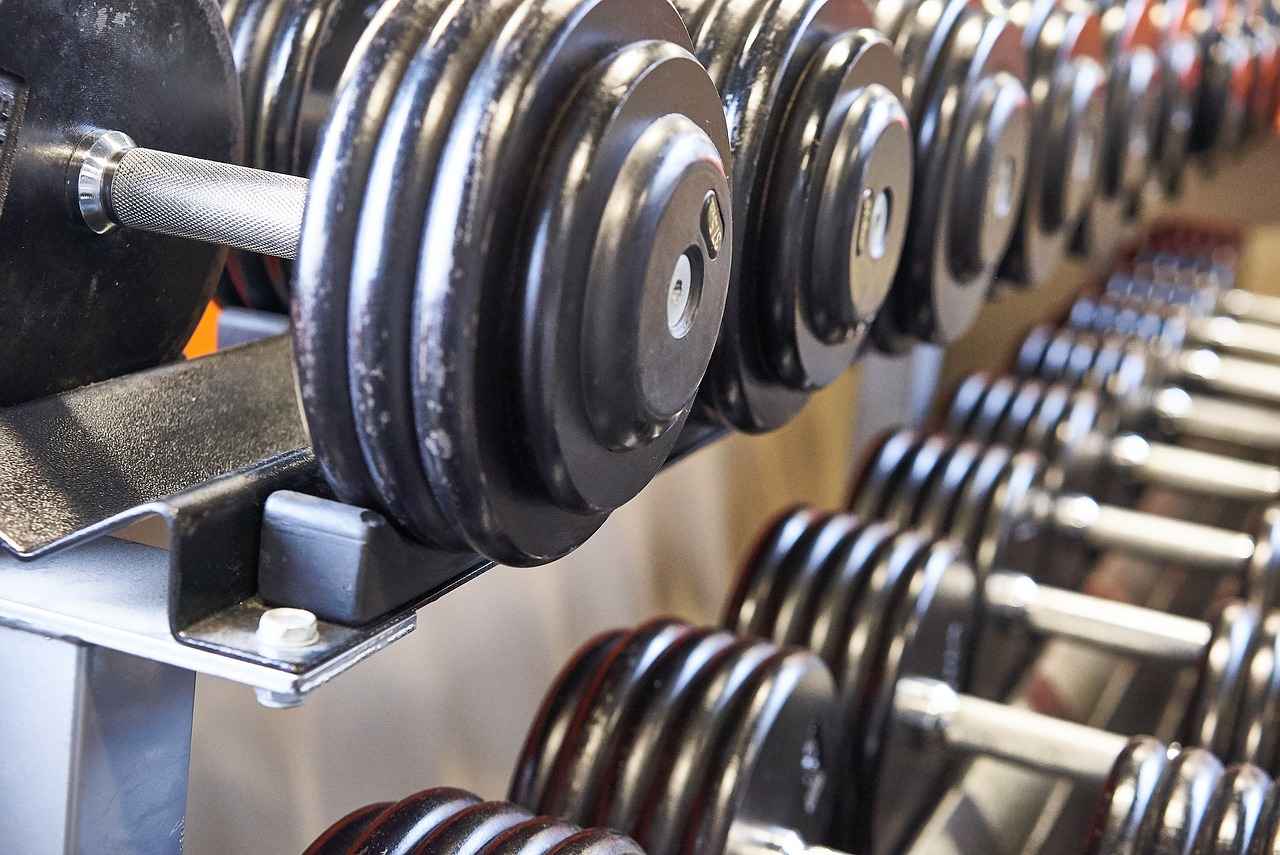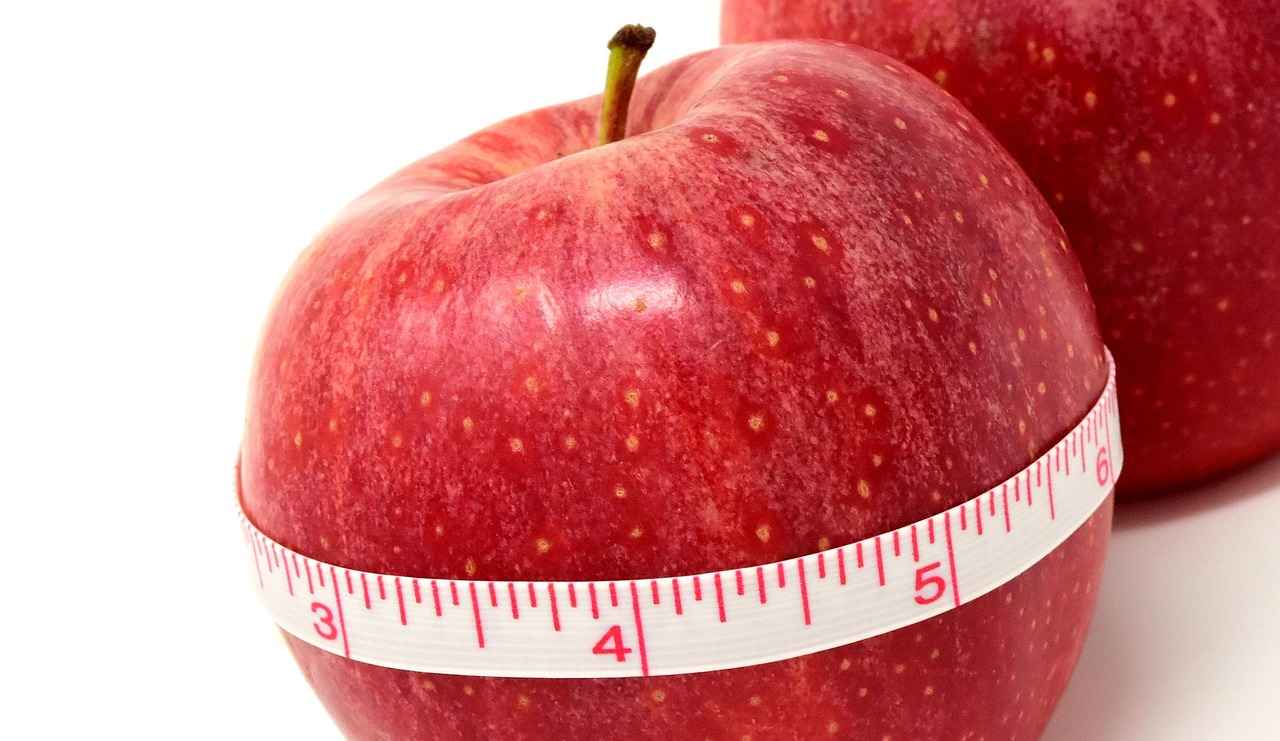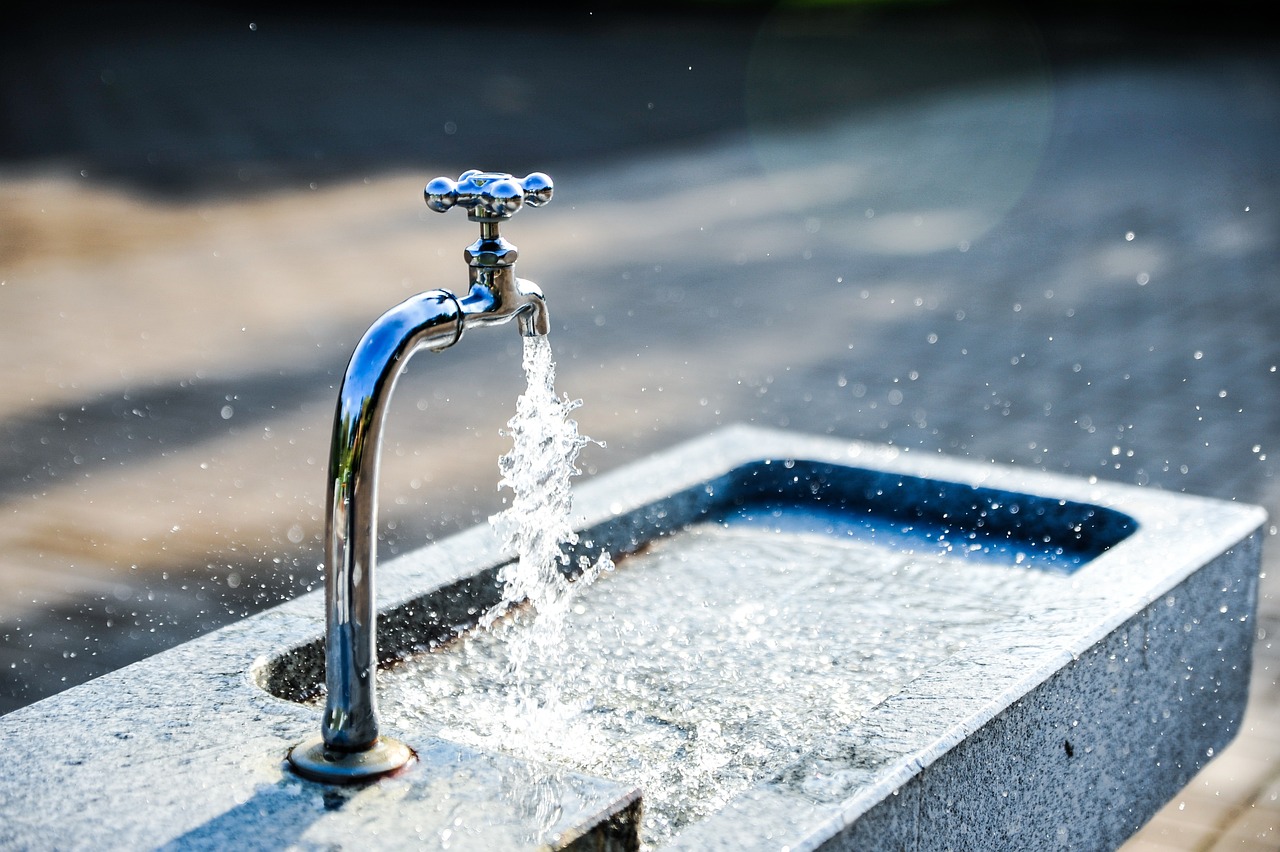This article explores effective strategies to lose water weight quickly, providing insights into dietary changes, exercise routines, and lifestyle adjustments that can help achieve rapid results safely and effectively.
Understanding Water Weight
Water weight refers to the excess fluid retained in the body, which can fluctuate due to various factors such as diet, exercise, and hormonal changes. Understanding this concept is essential for effective weight management. When the body retains more water than usual, it can lead to temporary weight gain, which can be frustrating for those trying to maintain or lose weight.
Common Causes of Water Retention
Water retention can be caused by several factors, including:
- High sodium intake
- Hormonal changes
- Certain medical conditions
Identifying these causes is crucial for implementing effective solutions. For instance, high sodium levels can lead to increased fluid retention, while hormonal fluctuations during menstrual cycles can also contribute to temporary weight gain.
Effective Dietary Changes
Making specific dietary changes can significantly reduce water weight. Here are some effective strategies:
- Increase potassium intake: Potassium helps balance sodium levels in the body, promoting the excretion of excess water. Foods like bananas, spinach, and avocados are excellent sources.
- Stay hydrated: Drinking more water may seem counterintuitive, but proper hydration can actually help the body release retained water. Aim for at least eight glasses of water a day.
- Reduce sodium consumption: Processed foods often contain high levels of sodium, which can lead to water retention. Opt for fresh, whole foods whenever possible.
Exercise Strategies for Quick Results
Incorporating exercise into your routine can help reduce water weight by promoting sweating and improving circulation. Effective workout strategies include:
- Cardiovascular workouts: Engaging in activities like running, cycling, or swimming can increase sweat production, helping to release excess water from the body.
- Strength training: Building muscle mass through strength training can enhance metabolism and promote fluid balance, contributing to water weight loss.
Lifestyle Adjustments for Water Weight Loss
Making certain lifestyle adjustments can further support efforts to lose water weight. Consider these practical tips:
- Manage stress levels: High stress can lead to hormonal changes that promote water retention. Techniques such as yoga or meditation can be beneficial.
- Prioritize sleep: Quality sleep is crucial for overall health and can influence fluid balance in the body. Aim for 7-9 hours of sleep each night.
Conclusion
By understanding the factors that contribute to water retention and implementing these effective strategies, individuals can achieve rapid results in losing water weight. Combining dietary changes, exercise, and lifestyle adjustments can lead to a healthier, more balanced body.

Understanding Water Weight
Water weight is a term commonly used to describe the excess fluid that the body retains. This phenomenon can lead to temporary weight fluctuations, which may be confusing for those trying to manage their weight effectively. Understanding the underlying factors that contribute to water retention is crucial for anyone looking to achieve their health and fitness goals.
Several factors can influence water weight, including dietary habits, physical activity levels, hormonal changes, and certain medical conditions. By recognizing these factors, individuals can take proactive steps to minimize water retention and enhance their overall well-being.
| Factor | Description |
|---|---|
| Diet | High sodium and carbohydrate intake can lead to increased water retention. |
| Hormones | Hormonal fluctuations, particularly during menstruation, can cause the body to retain more water. |
| Exercise | Inadequate physical activity can lead to poor circulation and increased fluid retention. |
| Medical Conditions | Conditions such as kidney disease or heart failure can significantly impact fluid balance. |
Dietary Factors
One of the most significant contributors to water weight is diet. Foods high in sodium can cause the body to hold onto excess water. Processed foods, fast foods, and snacks often contain high levels of salt, which can lead to bloating and weight gain. To combat this, it is essential to focus on a low-sodium diet and incorporate fresh fruits and vegetables, which are naturally low in salt.
Carbohydrates also play a role in water retention. When carbohydrates are consumed, they are stored in the body along with water. This means that a diet high in carbs can lead to increased water weight. Reducing carbohydrate intake, particularly refined carbs, can help in managing water weight effectively.
Medical Conditions
In some cases, water retention can be a symptom of underlying medical conditions. Kidney disease, heart failure, and liver problems can all lead to significant fluid retention. If someone experiences unexplained weight gain or persistent bloating, it is advisable to consult a healthcare professional for a thorough evaluation.
Effective Dietary Changes
To reduce water weight, individuals can implement specific dietary changes. Increasing potassium intake is one effective strategy. Potassium helps balance sodium levels in the body, promoting the excretion of excess water. Foods rich in potassium include bananas, avocados, and spinach.
Additionally, drinking more water can seem counterintuitive, but staying properly hydrated can actually help the body release retained water. When the body senses dehydration, it tends to hold onto water, leading to increased water weight. Therefore, maintaining adequate hydration is essential for overall health.
Conclusion
Understanding water weight is vital for effective weight management. By recognizing the dietary and lifestyle factors that contribute to water retention, individuals can take actionable steps to minimize its impact. Whether through dietary changes, increased physical activity, or consulting with a healthcare professional, achieving a healthy fluid balance is key to overall wellness.

Common Causes of Water Retention
Water retention, or edema, is a condition where excess fluid builds up in the body’s tissues. Understanding the common causes of water retention is essential for effective management and treatment. This section delves into various factors that can lead to this condition, highlighting dietary influences, hormonal fluctuations, and medical issues.
- High Sodium Intake: One of the primary culprits of water retention is a diet high in sodium. Sodium attracts water, causing the body to retain fluid. Processed foods, canned soups, and salty snacks are often loaded with sodium. Reducing salt intake can significantly alleviate water retention.
- Hormonal Changes: Hormonal fluctuations, particularly in women, can lead to water retention. Conditions such as premenstrual syndrome (PMS) and pregnancy are commonly associated with hormonal changes that cause the body to hold onto excess fluid. Understanding these patterns can help in anticipating and managing water retention.
- Carbohydrate Consumption: Carbohydrates are stored in the body along with water. When you consume a high-carb diet, your body retains more water. Reducing carbohydrate intake can lead to a quick loss of water weight, as the body uses up stored glycogen and releases the accompanying water.
- Medical Conditions: Certain medical conditions can also lead to significant water retention. For instance, kidney disease, heart failure, and liver cirrhosis can disrupt the body’s ability to manage fluid levels. If water retention is persistent and unexplained, it is crucial to consult a healthcare professional for evaluation.
- Medications: Some medications, particularly those for high blood pressure, anti-inflammatories, and certain antidepressants, can cause water retention as a side effect. If you suspect your medication is contributing to this issue, discussing alternatives with your doctor is advisable.
- Lack of Physical Activity: A sedentary lifestyle can lead to poor circulation, which may contribute to water retention. Regular physical activity helps improve circulation and encourages the body to expel excess fluids.
By identifying these factors, individuals can take proactive steps to minimize water retention. Making dietary adjustments, engaging in regular exercise, and being aware of hormonal changes can significantly improve fluid balance in the body. Additionally, understanding the role of medical conditions and medications can empower individuals to seek appropriate treatment when necessary.
In conclusion, recognizing the common causes of water retention is the first step toward effective management. By addressing dietary habits, lifestyle choices, and underlying health issues, individuals can reduce the impact of water retention on their overall well-being.
Dietary Factors
When it comes to managing water weight, understanding the role of dietary factors is crucial. Certain foods, especially those high in salt and carbohydrates, can significantly contribute to water retention in the body. By recognizing how these dietary influences operate, individuals can implement effective strategies to manage and reduce water weight.
High Sodium Consumption
Foods that are rich in sodium, such as processed snacks, canned soups, and fast food, can cause the body to retain excess water. Sodium plays a vital role in regulating fluid balance, and when consumed in high amounts, it can lead to an increase in water retention. To combat this, it is essential to reduce sodium intake by opting for fresh, whole foods and seasoning meals with herbs and spices instead of salt.
Carbohydrate Intake
Carbohydrates are another significant contributor to water retention. When carbohydrates are stored in the body, they are accompanied by water. This means that a high-carb diet can lead to increased water weight. To manage this, consider adopting a low-carb diet or strategically reducing carbohydrate intake, particularly refined carbs found in sugary snacks and white bread. Instead, focus on complex carbohydrates from whole grains, fruits, and vegetables, which can provide essential nutrients without excessive water retention.
Foods to Avoid
- Processed foods
- Canned vegetables with added salt
- Fast food and takeout meals
- Snack foods like chips and pretzels
Foods to Include
- Fresh fruits and vegetables
- Lean proteins, such as chicken and fish
- Whole grains like quinoa and brown rice
- Herbs and spices for flavoring
Hydration and Its Role
While it may seem counterintuitive, drinking plenty of water can actually help reduce water retention. Proper hydration helps the body flush out excess sodium and reduces the likelihood of holding onto water. Aim to drink at least eight glasses of water a day, and consider incorporating hydrating foods such as cucumbers, watermelon, and oranges into your diet.
Potassium-Rich Foods
Another effective dietary strategy for combating water retention is to increase potassium intake. Potassium helps balance sodium levels in the body, promoting the excretion of excess water. Foods rich in potassium include bananas, sweet potatoes, spinach, and avocados. By incorporating these foods into your meals, you can help regulate fluid balance and reduce water retention.
Conclusion
By understanding the dietary factors that contribute to water retention, individuals can take proactive steps to manage their water weight. Reducing sodium and carbohydrate intake, staying hydrated, and incorporating potassium-rich foods are effective strategies that can lead to noticeable results. Remember, the journey to managing water weight is a gradual process, and making informed dietary choices is key to achieving lasting success.
High Sodium Consumption
High sodium consumption is a significant contributor to water retention in the body. Sodium, a mineral found abundantly in table salt and many processed foods, plays a crucial role in regulating fluid balance. However, excessive intake can lead to the body retaining more water than necessary, resulting in a temporary increase in weight and bloating.
When sodium levels are elevated, the body responds by holding onto water to maintain a proper balance. This physiological response is essential for survival, but it can be problematic when it leads to discomfort and unwanted weight gain. Reducing sodium intake is an effective strategy for minimizing water retention, which can be particularly beneficial for individuals looking to lose weight quickly.
Identifying High-Sodium Foods
To effectively lower sodium intake, it is essential to identify foods that are high in sodium. Common culprits include:
- Processed Foods: Items like canned soups, frozen meals, and deli meats often contain added sodium for flavor and preservation.
- Snack Foods: Chips, pretzels, and salted nuts can significantly contribute to daily sodium intake.
- Condiments: Soy sauce, ketchup, and salad dressings can be surprisingly high in sodium.
By being mindful of these foods, individuals can make informed choices that align with their health goals. Instead, opting for fresh, whole foods such as fruits, vegetables, and lean proteins can help in reducing sodium levels.
Benefits of Reducing Sodium Intake
Lowering sodium consumption not only aids in reducing water retention but also offers several other health benefits:
- Improved Blood Pressure: High sodium intake is linked to elevated blood pressure, so reducing it can help maintain cardiovascular health.
- Reduced Bloating: Many individuals report feeling less bloated and more comfortable after decreasing their sodium intake.
- Enhanced Weight Loss: By shedding excess water weight, individuals may see quicker results on the scale, which can be motivating in a weight loss journey.
Practical Tips for Reducing Sodium
Here are some practical strategies to help reduce sodium intake:
- Read Labels: Always check food labels for sodium content, aiming for options with lower sodium levels.
- Cook at Home: Preparing meals at home allows for better control over the ingredients and sodium levels.
- Use Herbs and Spices: Enhance flavor without salt by using herbs, spices, and lemon juice in cooking.
- Stay Hydrated: Drinking plenty of water can help flush out excess sodium from the body.
Conclusion
In summary, understanding the impact of high sodium consumption on water retention is crucial for anyone looking to manage their weight effectively. By making conscious dietary choices and opting for lower-sodium options, individuals can not only reduce water retention but also promote overall health and well-being.
Carbohydrate Intake
When it comes to managing weight, plays a significant role, especially in relation to water retention. Carbohydrates are not just a primary source of energy; they also affect the body’s fluid balance. Understanding how carbohydrates influence water retention can aid in effective weight management.
Carbohydrates are stored in the body as glycogen, which is primarily found in the liver and muscles. For every gram of glycogen stored, approximately 3 to 4 grams of water are also retained. This means that when you consume a high amount of carbohydrates, your body retains more water, leading to an increase in overall weight. This phenomenon is often referred to as water weight.
To effectively manage water retention, it is essential to monitor your carbohydrate consumption. Here are some strategies to consider:
- Reduce Simple Carbohydrates: Foods high in simple sugars, such as candies, pastries, and soft drinks, can lead to rapid spikes in blood sugar levels, causing the body to store more glycogen and subsequently more water. Opting for complex carbohydrates like whole grains can help stabilize blood sugar and reduce water retention.
- Balance Your Meals: Incorporate a balanced mix of protein, healthy fats, and fiber-rich foods to help slow down carbohydrate absorption. This can help prevent excessive glycogen storage and minimize water retention.
- Monitor Portion Sizes: Keeping an eye on portion sizes can prevent overconsumption of carbohydrates. Using smaller plates or measuring portions can be effective strategies.
- Consider Carb Cycling: This method involves alternating between high and low carbohydrate intake days. On low-carb days, your body will use stored glycogen for energy, which can lead to a reduction in water retention.
In addition to dietary adjustments, it’s important to stay hydrated. While it may seem counterintuitive, drinking sufficient water can actually help your body release retained fluid. When the body is dehydrated, it tends to hold onto water, exacerbating the problem of water retention.
Another effective strategy is to incorporate regular exercise into your routine. Physical activity not only helps burn off glycogen stores but also promotes sweating, which can lead to a temporary loss of water weight. Engaging in both cardiovascular and strength training exercises can enhance your overall results.
Furthermore, managing stress levels is crucial. High stress can lead to hormonal imbalances that may promote water retention. Techniques such as yoga, meditation, or deep breathing exercises can help manage stress effectively.
In summary, understanding the relationship between carbohydrate intake and water retention is vital for effective weight management. By making informed dietary choices, staying hydrated, exercising regularly, and managing stress, you can significantly reduce water weight. Remember, these changes may take time, but consistency is key to achieving lasting results.
Medical Conditions
When discussing water retention, it is crucial to consider various that can significantly impact fluid balance in the body. Certain health issues, particularly those affecting the kidneys and heart, can lead to excessive fluid accumulation, often resulting in noticeable weight gain that may seem unexplained. Understanding these conditions is essential for anyone experiencing such symptoms.
| Medical Condition | Description | Symptoms |
|---|---|---|
| Kidney Disease | The kidneys play a vital role in filtering waste and excess fluid from the blood. When they are compromised, fluid retention can occur. | Swelling in the legs, ankles, and feet; fatigue; changes in urination. |
| Heart Failure | This condition occurs when the heart is unable to pump blood effectively, leading to fluid buildup in the body. | Shortness of breath; swelling in the abdomen; rapid weight gain. |
| Liver Disease | The liver helps regulate fluid levels in the body. Liver dysfunction can lead to fluid retention, particularly in the abdomen. | Swelling in the abdomen; jaundice; fatigue. |
Understanding the underlying causes of water retention related to these medical conditions is vital. For instance, kidney disease can disrupt the body’s ability to remove excess sodium and water, leading to swelling and increased weight. Those suffering from heart failure may find that their bodies retain fluid as a compensatory mechanism due to reduced blood circulation.
Additionally, liver disease can affect the production of proteins that help maintain fluid balance, resulting in fluid accumulation in the abdominal cavity. It is important for individuals experiencing unexplained weight gain to consult with healthcare professionals to assess for these conditions.
Moreover, hormonal changes can also play a role in fluid retention. Conditions such as polycystic ovary syndrome (PCOS) and thyroid disorders can lead to hormonal imbalances that may cause the body to retain more water than usual. This is particularly common in women during their menstrual cycle, where hormonal fluctuations can lead to temporary weight gain due to water retention.
In conclusion, recognizing the impact of these medical conditions on water retention is crucial for effective management. If you notice sudden or unexplained weight gain, it is advisable to seek medical advice to rule out any serious underlying issues. Early intervention can lead to better outcomes and improved quality of life.

Effective Dietary Changes
Making specific dietary changes can significantly reduce water weight. By understanding the types of foods and drinks that contribute to water retention, you can make informed choices that lead to rapid results.
The key to reducing water weight lies in incorporating foods that are low in sodium and high in nutrients that promote fluid balance. Here are some of the most effective dietary changes you can make:
- Increase Potassium-Rich Foods: Foods such as bananas, sweet potatoes, spinach, and avocados are excellent sources of potassium. This mineral helps to balance sodium levels in the body and encourages the excretion of excess water.
- Opt for Hydrating Fruits and Vegetables: Incorporating fruits and vegetables with high water content, like cucumbers, watermelon, and oranges, can aid in hydration and help flush out excess fluids.
- Stay Hydrated: While it may seem counterintuitive, drinking more water can actually help your body release retained water. Aim for at least 8-10 glasses of water a day to maintain optimal hydration.
- Limit Processed Foods: Processed foods often contain high levels of sodium, which can lead to water retention. Focus on whole, unprocessed foods to minimize sodium intake.
- Incorporate Herbal Teas: Certain herbal teas, such as dandelion tea and green tea, have natural diuretic properties that can help reduce water retention while providing antioxidants.
In addition to these dietary changes, it is also essential to be mindful of your overall eating habits. Here are some practical insights to enhance your results:
- Eat Smaller, More Frequent Meals: This approach can help regulate your metabolism and prevent bloating caused by overeating.
- Monitor Carbohydrate Intake: Carbohydrates can cause the body to retain water. Consider reducing your intake of refined carbs, such as white bread and sugary snacks, while focusing on complex carbs like whole grains.
- Use Herbs and Spices: Incorporating herbs like parsley and spices like ginger can not only enhance flavor but also support digestion and reduce bloating.
By making these , you can significantly reduce water weight and achieve rapid results. Remember that consistency is key, and combining these dietary adjustments with proper hydration and exercise will yield the best outcomes.
Increasing Potassium Intake
In the quest to lose water weight quickly, one of the most effective dietary changes you can make is to increase your intake of potassium. This essential mineral plays a crucial role in maintaining a healthy fluid balance in the body, particularly by counteracting the effects of sodium. When sodium levels are high, the body tends to retain water, leading to that uncomfortable feeling of bloating. By incorporating more potassium-rich foods into your diet, you can promote the excretion of excess water, thereby reducing water retention.
Potassium is vital for numerous bodily functions, including:
- Regulating Blood Pressure: Potassium helps to relax blood vessel walls, which can lower blood pressure and support heart health.
- Muscle Function: It is essential for muscle contractions, including the heart muscle, ensuring that your body functions optimally.
- Fluid Balance: Potassium works in tandem with sodium to maintain fluid balance, preventing excessive water retention.
Incorporating potassium-rich foods into your meals can be both delicious and beneficial. Here are some excellent sources:
| Food Item | Potassium Content (per 100g) |
|---|---|
| Bananas | 358 mg |
| Sweet Potatoes | 337 mg |
| Spinach | 558 mg |
| Avocados | 485 mg |
| Potatoes | 425 mg |
| Beans (e.g., kidney beans) | 405 mg |
To effectively increase your potassium intake, consider the following practical tips:
- Start Your Day Right: Add a banana or a serving of oatmeal topped with nuts to your breakfast.
- Snack Smart: Choose potassium-rich snacks like yogurt with fruit or a handful of nuts instead of chips.
- Cook with Vegetables: Incorporate more leafy greens and root vegetables into your meals. A spinach salad or roasted sweet potatoes can boost your intake.
- Experiment with Smoothies: Blend avocados, spinach, and bananas for a nutrient-packed smoothie that is rich in potassium.
- Use Potassium Supplements Wisely: If dietary changes are insufficient, consider potassium supplements, but consult with a healthcare professional first.
While potassium is essential, it’s important to maintain a balance. Excessive potassium can lead to a condition known as hyperkalemia, which can cause serious health issues, particularly for individuals with kidney problems. Always consult with a healthcare provider before making significant changes to your diet or taking supplements.
In summary, increasing your potassium intake is a simple yet effective strategy for reducing water retention. By making conscious dietary choices and incorporating potassium-rich foods, you can enhance your body’s ability to regulate fluid balance, ultimately aiding in your efforts to lose water weight.
Hydrating with Water
is often overlooked in discussions about weight loss and overall health. Many people mistakenly believe that drinking less water will help them shed pounds, particularly when it comes to water weight. However, this is a misconception that can hinder your progress. In fact, maintaining proper hydration is crucial for optimal body function and can actually assist in releasing retained water.
When the body is dehydrated, it tends to hold onto water as a survival mechanism, leading to water retention. This can result in a temporary increase in weight, which can be frustrating for those trying to lose weight. By drinking more water, you signal to your body that it can release the excess fluid it has been holding onto. This process not only helps in reducing water weight but also supports various bodily functions, including digestion and circulation.
Moreover, staying adequately hydrated can enhance your metabolism. Studies have shown that drinking water can temporarily boost your metabolic rate, making it easier to burn calories. In addition, proper hydration is essential for kidney function, as the kidneys filter waste and excess fluids from the bloodstream. When you are well-hydrated, your kidneys can perform more efficiently, helping to eliminate toxins and excess water from your body.
Incorporating hydration into your daily routine doesn’t have to be complicated. Here are some effective strategies:
- Set a daily water intake goal: Aim for at least 8-10 glasses of water per day, adjusting based on your activity level and climate.
- Infuse your water: Add slices of fruits like lemon, cucumber, or berries to enhance the flavor and make drinking water more enjoyable.
- Keep water accessible: Always have a bottle of water on hand, whether at home, work, or during workouts, to encourage regular sipping.
- Track your intake: Use apps or journals to monitor your daily water consumption and ensure you meet your hydration goals.
In addition to these strategies, it’s essential to recognize that other beverages can contribute to your hydration. Herbal teas, coconut water, and even certain fruits and vegetables with high water content can help you stay hydrated. Foods like watermelon, cucumbers, and oranges are excellent choices that not only hydrate but also provide essential vitamins and minerals.
In summary, is a fundamental aspect of maintaining a healthy body and can significantly aid in losing water weight. By understanding the importance of proper hydration, you can take proactive steps to enhance your overall health and achieve your weight loss goals. Remember, drinking water is not just about quenching your thirst; it’s a vital component of a balanced lifestyle.

Exercise Strategies for Quick Results
Engaging in regular physical activity is a vital component of any effective strategy to lose water weight quickly. Exercise not only promotes sweating but also enhances circulation, which can significantly aid in the reduction of excess fluid retention in the body. Below, we explore various exercise strategies that can help you achieve rapid results.
Cardiovascular exercises are among the most effective ways to shed water weight. Activities like running, cycling, and swimming elevate your heart rate, leading to increased perspiration. When you sweat, your body releases excess water, which can lead to a noticeable drop in water weight.
- Running: A high-impact exercise that not only burns calories but also promotes significant sweating.
- Cycling: An excellent low-impact option that can be done indoors or outdoors, helping to boost your heart rate.
- Swimming: A full-body workout that is gentle on the joints while effectively promoting fluid loss through sweating.
Incorporating strength training into your routine can also be beneficial for reducing water weight. Building muscle mass increases your metabolic rate, which can help your body manage fluid levels more effectively. Include exercises that target major muscle groups, such as:
- Squats: Great for building leg muscles and promoting overall strength.
- Deadlifts: Effective for engaging multiple muscle groups and enhancing core stability.
- Bench Press: Helps build upper body strength, contributing to overall muscle mass.
As you increase your muscle mass, your body may become more efficient at managing water retention.
HIIT workouts are another excellent strategy for rapid water weight loss. These workouts involve short bursts of intense activity followed by brief recovery periods. This method not only maximizes calorie burn but also promotes sweating, leading to quick water loss. Examples of HIIT exercises include:
- Sprint Intervals: Alternating between sprinting and walking can significantly elevate your heart rate.
- Jump Rope: A fun and effective way to increase your heart rate and promote sweating.
- Burpees: A full-body exercise that combines strength and cardiovascular training.
While it may not seem like a traditional workout, yoga and stretching can play a role in reducing water weight. These practices enhance circulation and can help your body eliminate excess fluids. Focus on poses that promote blood flow and lymphatic drainage, such as:
- Downward Dog: A great way to stretch the entire body while promoting circulation.
- Bridge Pose: Helps open up the hips and improve blood flow to the lower body.
- Child’s Pose: A restorative pose that can help reduce stress and promote relaxation.
To maximize the benefits of exercise for water weight loss, consider integrating physical activity into your daily routine. Simple changes, such as taking the stairs instead of the elevator or going for a brisk walk during your lunch break, can contribute to your overall activity level.
In summary, a combination of cardiovascular workouts, strength training, HIIT, and flexibility exercises can effectively help reduce water weight. By incorporating these strategies into your routine, you can enhance your body’s ability to manage fluid levels and achieve your weight loss goals more quickly.
Cardiovascular Workouts
Engaging in is one of the most effective ways to enhance your fitness levels while simultaneously shedding excess water weight. These exercises, which include activities like running, cycling, and swimming, are designed to elevate your heart rate, leading to increased sweat production. This sweating process is essential, as it helps the body to release retained fluids and maintain a healthy balance.
When you participate in cardiovascular activities, your body undergoes a series of physiological changes. As your heart rate rises, your body temperature increases, prompting the sweat glands to activate. The primary purpose of sweating is to cool the body, but it also plays a crucial role in the elimination of excess water and toxins. This dual function makes cardiovascular workouts particularly beneficial for those looking to lose water weight quickly.
Moreover, engaging in regular cardiovascular exercise can lead to improved circulation and enhanced metabolism, which are vital for overall health and effective weight management. As your body becomes more efficient at processing nutrients and expelling waste, you may notice a reduction in water retention. This is particularly important for individuals who may be struggling with bloating or sudden weight fluctuations due to fluid retention.
Here are some popular cardiovascular exercises that can help you in your water weight loss journey:
- Running: A high-impact exercise that not only burns calories but also promotes significant sweat production.
- Cycling: Whether on a stationary bike or outdoors, cycling is excellent for cardiovascular health and fluid release.
- Jump Rope: An effective way to elevate your heart rate quickly, resulting in rapid sweating.
- Swimming: A low-impact option that still provides an excellent cardiovascular workout while helping to flush out excess water.
Incorporating these exercises into your routine can yield quick results. Aim for at least 150 minutes of moderate aerobic activity each week, as recommended by health experts. You can break this down into manageable sessions, such as 30 minutes a day, five times a week. This approach not only helps in reducing water weight but also contributes to overall cardiovascular health.
Additionally, it is essential to complement your cardiovascular workouts with proper hydration. While it may seem counterintuitive, drinking adequate water can actually help your body release retained fluids. When you are dehydrated, your body tends to hold onto water, creating a cycle of retention. Therefore, maintaining a balance of hydration while exercising will optimize your results.
In summary, cardiovascular workouts are a powerful tool in the quest to lose water weight. By engaging in activities that promote sweating and improve circulation, you can effectively manage fluid retention and enhance your overall fitness. Remember to combine these workouts with a balanced diet and proper hydration for the best outcomes. With dedication and consistency, you can achieve your water weight loss goals while enjoying the numerous health benefits that come with regular exercise.
Strength Training
is not just about building muscle; it plays a crucial role in managing body composition and promoting overall health. One of the lesser-known benefits of engaging in strength training is its ability to aid in reducing water weight. This article delves into how strength training contributes to fluid balance and enhances metabolic processes, ultimately leading to a decrease in water retention.
When individuals engage in strength training, they stimulate muscle growth. This increase in muscle mass is significant because muscle tissue is more metabolically active than fat tissue. As a result, a higher muscle mass can lead to an increase in metabolism, which is the rate at which the body burns calories. An elevated metabolism can help the body utilize stored energy more efficiently, thereby promoting the excretion of excess water.
Moreover, strength training encourages the body to balance its fluids more effectively. When muscles are worked, they require energy, which is derived from glycogen stored in the muscles. Glycogen is bound to water; thus, as glycogen is utilized during exercise, the associated water is also released. This process can lead to a noticeable reduction in water weight, making strength training a valuable tool for those looking to shed excess fluid.
Another critical aspect of strength training is its influence on hormonal balance. Exercise, particularly resistance training, can positively affect hormones that regulate fluid retention, such as aldosterone and cortisol. By promoting a healthier hormonal environment, strength training can help reduce the tendency of the body to retain water.
Furthermore, engaging in regular strength training can improve circulation and lymphatic drainage. Improved blood flow allows for better nutrient delivery and waste removal from the body, which can further assist in reducing water retention. The lymphatic system plays a vital role in removing excess fluid from tissues, and strength training can enhance its function.
To maximize the benefits of strength training for reducing water weight, it is essential to combine it with a balanced diet and proper hydration. Consuming foods rich in potassium, such as bananas, sweet potatoes, and spinach, can help counteract sodium’s effects and promote fluid balance. Additionally, staying adequately hydrated ensures that the body can efficiently manage fluid levels.
Incorporating strength training into your exercise routine does not require a gym membership or expensive equipment. Bodyweight exercises, resistance bands, and free weights can all be effective tools for building muscle and enhancing metabolism. Aim for at least two to three strength training sessions per week, focusing on all major muscle groups to achieve optimal results.
In summary, strength training is a powerful ally in the quest to reduce water weight. By building muscle mass, enhancing metabolism, and promoting fluid balance, it offers a multifaceted approach to managing excess fluid in the body. Whether you are a beginner or an experienced lifter, incorporating strength training into your routine can lead to significant improvements in your overall health and well-being.

Lifestyle Adjustments for Water Weight Loss
Making certain lifestyle adjustments can significantly enhance your efforts to lose water weight. By focusing on practical tips and strategies, you can optimize your results and feel more comfortable in your body. Below are some effective methods to consider.
- Stay Hydrated: It may seem counterintuitive, but drinking more water can actually help your body release retained fluids. Aim for at least 8-10 glasses of water a day to maintain proper hydration levels. This can promote kidney function and help flush out excess sodium.
- Reduce Sodium Intake: One of the primary culprits behind water retention is high sodium consumption. Try to limit processed foods, which often contain hidden salts, and focus on fresh fruits and vegetables. Reading nutrition labels can also help you make better choices.
- Incorporate Potassium-Rich Foods: Foods high in potassium, such as bananas, spinach, and sweet potatoes, can help balance sodium levels in the body. This balance promotes the excretion of excess water, aiding in weight loss.
- Engage in Regular Exercise: Physical activity not only helps burn calories but also promotes sweating, which can lead to a loss of water weight. Incorporate cardiovascular exercises like running or swimming, as well as strength training to build muscle mass.
- Manage Stress: High stress levels can lead to hormonal changes that encourage water retention. Consider incorporating stress-reduction techniques such as yoga, meditation, or deep-breathing exercises into your daily routine.
- Prioritize Quality Sleep: Lack of sleep can disrupt hormonal balance and lead to increased water retention. Aim for 7-9 hours of quality sleep each night to help regulate your body’s fluid balance.
- Avoid Sugary Drinks: Sugary beverages can lead to bloating and water retention. Opt for herbal teas or infused water instead, which can also help with hydration.
- Consider Natural Diuretics: Certain foods, such as cucumber, watermelon, and green tea, have natural diuretic properties that can help your body eliminate excess water. Incorporating these into your diet can be beneficial for water weight loss.
Implementing these lifestyle adjustments can lead to noticeable improvements in your water weight management efforts. By being mindful of your hydration, diet, exercise, and stress levels, you can create a balanced approach that not only helps you lose water weight but also promotes overall well-being.
Managing Stress Levels
Stress is an inevitable part of life, but managing it effectively is crucial for overall health and well-being. High stress levels can trigger hormonal changes that lead to water retention, making it essential to adopt strategies that mitigate stress. This section delves into the significance of stress management and offers practical techniques to help reduce water weight.
When the body is under stress, it releases hormones such as cortisol, which can lead to increased retention of fluids. This physiological response is a survival mechanism, but in modern life, it often results in unwanted weight gain and discomfort. Therefore, implementing effective stress management techniques can not only improve mental health but also assist in maintaining a healthy fluid balance in the body.
- Meditation: Engaging in meditation can significantly reduce stress levels. By dedicating just a few minutes each day to mindfulness practices, individuals can lower cortisol levels and promote relaxation. Studies suggest that regular meditation can lead to a reduction in water retention.
- Deep Breathing Exercises: Simple deep breathing techniques can help calm the mind and body. By focusing on slow, deep breaths, you can activate the body’s relaxation response, which may help decrease fluid retention.
- Physical Activity: Regular exercise is a powerful tool for managing stress. Activities such as walking, yoga, or dancing can release endorphins, improve mood, and help regulate hormones, thereby reducing water retention.
- Time in Nature: Spending time outdoors can have a calming effect on the mind. Nature walks not only provide physical activity but also expose you to natural beauty, which has been shown to lower stress and promote emotional well-being.
- Social Connections: Maintaining strong social ties can buffer against stress. Engaging with friends or loved ones, whether in person or virtually, provides emotional support and can help alleviate feelings of anxiety.
In addition to these techniques, it is essential to recognize the importance of adequate sleep in managing stress levels. Poor sleep can exacerbate stress and lead to hormonal imbalances that promote water retention. Aim for 7-9 hours of quality sleep per night to support your body’s natural recovery processes.
Furthermore, consider adopting a balanced diet rich in nutrients that support stress management, such as omega-3 fatty acids, magnesium, and antioxidants. Foods like fatty fish, nuts, seeds, and leafy greens can play a pivotal role in reducing stress and its physiological effects.
In summary, managing stress is a vital component in the quest to lose water weight effectively. By implementing strategies such as meditation, physical activity, and proper nutrition, individuals can not only enhance their mental well-being but also improve their body’s ability to maintain a healthy fluid balance. Prioritizing stress management techniques is essential for achieving optimal health and well-being.
Getting Adequate Sleep
Getting adequate sleep is not merely a matter of feeling rested; it plays a vital role in maintaining overall health and well-being. In recent years, research has increasingly highlighted the connection between sleep quality and various physiological processes, including fluid balance in the body. Understanding this relationship can empower individuals to make sleep a priority, especially when looking to lose water weight effectively.
Sleep and Fluid Balance
During sleep, the body undergoes numerous restorative processes that are crucial for maintaining homeostasis. One of these processes involves the regulation of fluids within the body. When we are sleep-deprived, our bodies may struggle to maintain this balance, leading to an increase in water retention. This can be attributed to hormonal fluctuations that occur due to insufficient sleep, particularly involving hormones like aldosterone and antidiuretic hormone (ADH).
The Role of Hormones
When you do not get enough sleep, your body may produce more aldosterone, a hormone that signals the kidneys to retain sodium and, consequently, water. Increased levels of ADH can also result in the kidneys reabsorbing more water, contributing to a feeling of bloating and discomfort. By prioritizing quality sleep, you can help regulate these hormones, thereby supporting your body’s natural ability to manage fluid levels.
Sleep Duration and Quality
It’s important to note that both the duration and quality of sleep matter. Aim for 7-9 hours of uninterrupted sleep each night. Establishing a consistent sleep schedule, where you go to bed and wake up at the same time daily, can enhance sleep quality. Additionally, creating a conducive sleep environment—one that is dark, quiet, and cool—can help improve the overall quality of sleep.
Tips for Improving Sleep Quality
- Limit Screen Time: Reduce exposure to screens at least an hour before bed. The blue light emitted can interfere with the production of melatonin, a hormone that regulates sleep.
- Mind Your Diet: Avoid heavy meals, caffeine, and alcohol close to bedtime, as these can disrupt sleep patterns.
- Practice Relaxation Techniques: Engage in calming activities such as reading, meditation, or gentle yoga to prepare your body for sleep.
- Stay Active: Regular physical activity can promote better sleep, but try to avoid vigorous exercise close to bedtime.
Sleep and Weight Loss
In addition to its role in fluid balance, adequate sleep can indirectly aid in weight loss by regulating appetite. Lack of sleep has been linked to increased levels of the hunger hormone ghrelin and decreased levels of the satiety hormone leptin. This imbalance can lead to increased cravings and overeating, making it more challenging to achieve weight loss goals, including losing water weight.
By prioritizing sleep, you not only support your body’s fluid management but also create a conducive environment for weight loss. Remember, quality sleep is a cornerstone of a healthy lifestyle and should not be overlooked in your journey to better health.
Frequently Asked Questions
- What is water weight?
Water weight refers to the excess fluid that your body retains. It can fluctuate based on various factors like diet, exercise, and hormonal changes.
- What causes water retention?
Common causes of water retention include high sodium intake, hormonal shifts, and certain medical conditions. Identifying these can help you manage water weight effectively.
- Can dietary changes help reduce water weight?
Absolutely! Reducing sodium and carbohydrate intake while increasing potassium-rich foods can significantly help in losing water weight.
- Is drinking more water beneficial for losing water weight?
Yes, it may sound counterintuitive, but staying well-hydrated helps your body release retained water, promoting overall health.
- How does exercise affect water weight?
Engaging in cardiovascular workouts increases sweating, which helps release excess water. Strength training can also improve fluid balance in your body.
- What lifestyle changes can support water weight loss?
Managing stress and ensuring adequate sleep are crucial. Both can help regulate hormones that influence water retention.












